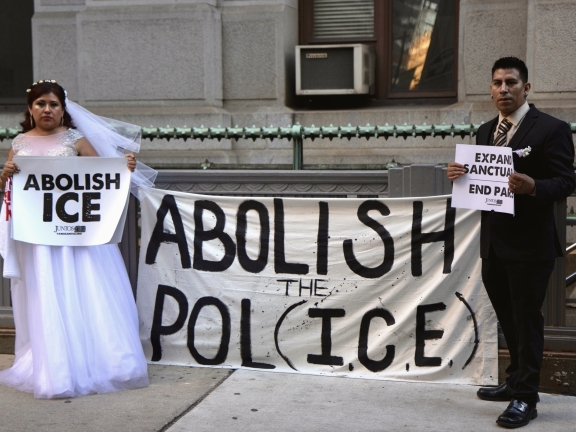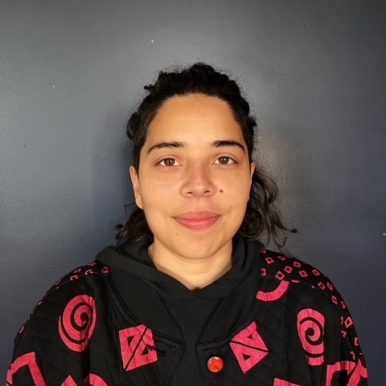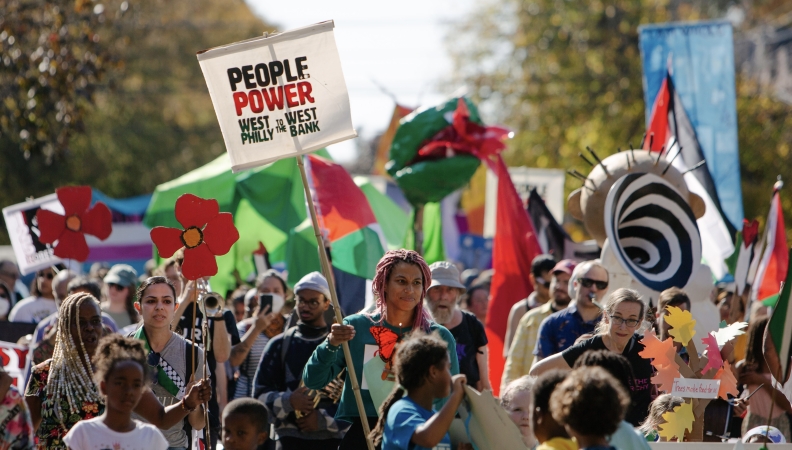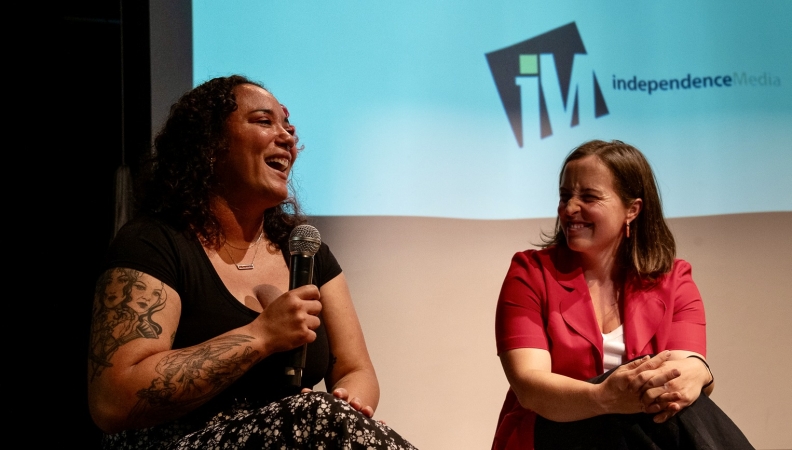Building a Better Future: Supporting Key Grantee Partners During Political Uncertainty

These are not easy times. Federal cuts are dismantling social services that people throughout the country, and in the Greater Philadelphia region, depend on. At the same time, we are facing a rapid and dangerous decline in access to quality, life-saving information. This decline stems from both the chronic underfunding of nonprofit newsrooms and the government’s defunding of the Corporation for Public Broadcasting, which channels federal funding to NPR and PBS.
Now and always, the local philanthropic sector must actively support the region’s media ecosystem to build and strengthen much-needed information networks. We must also support communities that are facing unconstitutional bans, narrative erasure, and violence as they fight to document, share, and preserve their stories.
Against this backdrop, IPMF program staff reflected on the 2025 Key Partners Cycle and the foundation’s role in supporting the community media ecosystem and grassroots narrative strategies that build people power. Leading up to this cycle, staff met with key grantee partners and projects to understand how they’re navigating this tumultuous sociopolitical moment, integrating wellness, and conceptualizing impact. These visits also help us identify ecosystem-wide patterns and reflect on how we can be better philanthropic partners.
These grants represent our ongoing commitment to our key partners’ vital work of creating, documenting, distributing, and amplifying community media. This cycle revealed both the pressures our grantees face in the current political, economic, and funding landscape and the remarkable strength they wield through it all.
Below are some of the themes that came out of IPMF’s 2025 Key Partners Cycle.
What’s at the Forefront
Concerns about the political climate. Many of our partners have faced federal and corporate funding cuts, particularly for work involving diversity, equity, and inclusion. These cuts have affected a fellowship that aims to diversify the field of journalism, a community archive that preserves diasporic histories, and a film program dedicated to training upcoming local talent. Some organizations lost multi-year funding unexpectedly, forcing them to scrap or redesign their programs. These setbacks place partners in a tough position that was already difficult with limited funding going to media organizations.
Despite the challenges, our partners continue creating media for our collective freedom. For example, Centro de Cultura Arte Trabajo y Educacion (CCATE) is producing a collaborative podcast on resistance, born out of an IPMF community radio and podcasters convening last year. In partnership with other local radio and podcasts such as We Are the Seeds, Olney Culture Lab, PA Youth Vote, and Scribe Video Center's WPEB 88.1 FM, CCATE is driving cross-community collaboration and amplifying the media’s role in movement building. The power of this grantee-led organizing lies in both the media-making and the process of co-constructing a shared narrative of hope in the face of oppression.
Threats to immigrants. With significant government funding being allocated to Immigration and Customs Enforcement (ICE) and the detention and deportation of immigrant communities, our partners are feeling a sense of urgency to document these issues, share stories of resilience and resistance, and keep families together.
Movement of Immigrant Leaders in PA (MILPA) anticipated the significantly expanded presence of and funding for ICE and is working hard to build up Radio MILPA to keep members informed. Their vision is to use Radio MILPA as a multilingual media hub that provides accessible and easy-to-understand content about human rights.
To further support our partners, we’re exploring ways to help our grantees build stronger digital security measures to protect themselves and the communities they serve.
Financial sustainability, growth, and unexpected challenges. One significant victory is that all of our key partner organizations now have paid staff. The increased grants we provided to small grassroots organizations last year have scaled their operations and reduced burnout.
Yet, with growth comes new terrain and challenges. Some organizations now worry about maintaining sufficient revenue to sustain their staff. We're collaborating with grantee partners to develop new programming to increase their earned revenue and diversify their funding sources. We are grateful to the South Asian American Digital Archive for proposing this initiative, and to Love Now Media and 2Puntos Platform for piloting this with us.
Additionally, five grantees are part of a fundraising cohort lab designed by Sara Zia Ebrahimi Hughes and Raquel Hazell. Through workshops and individual consultation, they’re working on developing successful fundraising campaigns. As a group, they will leave with a fundraising plan, pitch deck, and a deeper understanding of how narrative, visual identity, and having the right operation processes in place transform fundraising.
Increased demand to connect with each other and funders. Nearly every site visit highlighted the vital importance of convening. Partners consistently emphasized how much strength they draw from connecting with each other, and they've asked IPMF to facilitate more of these gatherings. Most also seek connections with other funders to share their work and make the case for supporting community-led media making.
We recognize that many of our partners are creating work that comes with risk, and often there isn’t a space for connecting with others doing similar work. Earlier this year, we held a virtual convening of grantee organizations who have lifted up narratives in support of Palestinian liberation. Grantees discussed their motivations for joining this international discourse, one that has strong local implications. It left grantees and those who attended the gathering, inspired and informed.
We also gathered at Scribe Video Center with grantees creating media around mass incarceration. Several of them have been impacted by the carceral system, and they discussed the challenges and opportunities that come with telling stories that ultimately seek to challenge an oppressive system, foster healing, and advocate for systemic change.
Moving forward, we will prioritize gatherings for network-building, knowledge-sharing, and communities of practice. We recognize that while many media makers and organizations may be addressing similar issues, they don’t often have an opportunity to connect. This space is critical.
What’s Next
We remain hopeful despite these times. Together with our grantee and philanthropic partners, we believe in the media's power to create a society where everyone's lives and needs are respected and valued.
For IPMF, this means continuing our work beyond grantmaking. It means showing up consistently, honestly, and thoughtfully. It means building meaningful connections with the people on the ground fighting daily for a liberatory future; their consistent courage and creativity inspire us to keep pushing forward.
Photo credit: Milady Nazir




